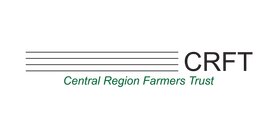Report Synopsis
How can corporate business facilitate agricultural transition?
The success of corporate business is measured in how much value it creates for shareholders. Over the years various financial metrics have been developed to indicate success such as profit generated which in turn influences share price and dividend yield. Yet the relentless focus on financial return has led to some questionable practices becoming commonplace such as those which exploit the world’s natural resources, damage the environment and take advantage of the vulnerable.
It is only relatively recently that rather than just asking ‘how much profit has been generated’ the question of ‘how profit is generated’ has been posed. The world of finance has identified that those businesses who operate more morally, ethically and in an environmentally sensitive way are better at controlling risk and therefore constitute better investment options. In order to measure this, Environment, Social and Governance (ESG) reporting has been developed which measures the non-financial performance of a business. This is an emerging science which currently lacks statutory control, but it has become increasingly important to the world of investment.
Within the food and agriculture sectors, corporate businesses are now having to place greater emphasis on the impact of their supply chains on the environment and on labour exploitation. But different businesses have different approaches, and the relative complexity of supply chains highlights the difficulty of finding simple solutions which drive sustainable, positive impact.
The purpose of this project was to understand the ways in which corporate business can genuinely drive change throughout agricultural supply chains through seeking examples of different methods and approaches taken to understand what has worked well and what has not, and how these approaches have affected farm livelihoods.
There were several key findings which were identified:
- There is no simple solution. One size does not fit all, and it may be more appropriate to pursue a portfolio of desired outcomes which allow existing supply chains and farmers flexibility to identify their own solutions.
- The balance of risk and reward should be shared. The current focus is for farmers to change their agricultural practices, yet this can carry significant risk and their (corporate) customers should be prepared to help offset this risk and/or share in any associated reward.
- Duplication is inefficient. By aligning with charities, NGOs, or academics, corporate business can help to fund vital work by experts which will drive change across the sector for the greater good.
- Action should be in the common interest. Care must be taken in marketing the development of positive impact as a point of difference over the competition. Such action can lead to shortcuts (such as replacing supply chains rather than working with existing incumbents), greenwashing and customer confusion.
- Certification is not always the answer. Unless certification means something to the consumer or attracts a market premium, it can be expensive and time-consuming burden to the farmer and/or supply chain.
Lucy Maclennan

Central Region Farmers Trust

Similar Reports
- 2024
Is tracking carbon on farm good for business?
Pippa Jones - 2022
Sustainable financing of Brazilian farming: the role that supply chains can play and carbon markets probably will not
Renata Rossetto Lopes - 2022
Cannabis in Australia: cultivating at scale and lessons from overseas markets
Max Edgley - 2022
Can carbon neutral insects be farmed profitably?
Dr Olivia L. Champion
